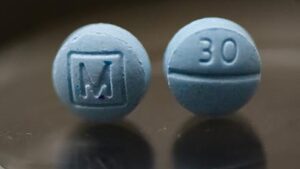The LGBTQ+ community faces unique challenges when it comes to substance abuse and addiction. Research consistently shows higher rates of drug and alcohol use among LGBTQ+ individuals compared to their heterosexual and cisgender counterparts. At Texas Recovery Centers, we recognize the importance of addressing these disparities and providing care to support LGBTQ+ individuals in their recovery journey.
Understanding the Statistics
Before delving into the factors contributing to higher addiction rates in the LGBTQ+ community, it’s important to understand the scope of the issue:
- LGBTQ+ adults are more than twice as likely as heterosexual adults to use illicit drugs.
- Nearly a third of LGBTQ+ adults report binge drinking, compared to about a quarter of heterosexual adults.
- Transgender individuals have particularly high rates of substance use, with some studies suggesting rates as high as 30% for illicit drug use.
- LGBTQ+ youth are 120% more likely to experience substance abuse than their heterosexual peers.
Factors Contributing to Higher Addiction Rates
Several unique factors contribute to the higher rates of substance abuse and addiction in the LGBTQ+ community:
1. Minority Stress
The concept of minority stress refers to the chronic stress experienced by individuals belonging to stigmatized minority groups. For LGBTQ+ individuals, this can include:
- Prejudice
- Fear of rejection or violence
- The stress of hiding one’s identity
These stressors can lead to increased anxiety, depression, and a higher likelihood of turning to substances as a coping mechanism.
2. Lack of Healthcare Specifically for LGBTQ+ Groups
Many LGBTQ+ individuals may face barriers when accessing healthcare, including:
- Lack of understanding about LGBTQ+-specific health needs
- Fear of disclosing sexual orientation or gender identity
These barriers can prevent LGBTQ+ individuals from seeking help for substance use issues or receiving appropriate preventive care.
3. Social Isolation and Rejection
LGBTQ+ individuals, especially youth, may face rejection from family members or social groups upon coming out. This isolation can lead to:
- Increased risk of homelessness
- Higher rates of depression and anxiety
- Seeking acceptance in environments where substance use is prevalent
4. Trauma and PTSD
LGBTQ+ individuals are more likely to experience traumatic events, including:
- Physical or sexual violence
- Childhood abuse or neglect
These experiences can lead to Post-Traumatic Stress Disorder (PTSD), which is often co-occurring with substance use disorders.
5. Normalization of Substance Use in LGBTQ+ Spaces
Historically, bars and clubs have been safe havens for the LGBTQ+ community. While these spaces provide crucial opportunities for connection and community, they can also normalize excessive alcohol and drug use.

The Importance of LGBTQ+ Addiction Treatment
Given the unique challenges faced by LGBTQ+ individuals, it’s crucial that addiction treatment programs offer care for these groups. This approach includes:
1. Cultural Competence
Staff should be trained in LGBTQ+ cultural competence, understanding the specific needs and experiences of this community.
2. Addressing Co-occurring Mental Health Issues
Treatment should address co-occurring mental health issues common in the LGBTQ+ community, such as anxiety, depression, and PTSD.
3. Trauma-Informed Care
Recognizing and addressing the impact of trauma is crucial for effective treatment of LGBTQ+ individuals.
4. Inclusive Environment
Treatment centers should create a safe environment where LGBTQ+ individuals feel comfortable being themselves.
LGBTQ+ Addiction Treatment at Texas Recovery Centers
At Texas Recovery Centers, we are committed to providing inclusive, specialized support for LGBTQ+ individuals seeking recovery. Our approach includes:
- LGBTQ+ support groups and therapy sessions
- Staff trained in cultural competence
- Comprehensive mental health assessments and treatment
- Trauma-informed care practices
- Family therapy and education programs
- Connections to community resources
We recognize that each individual’s journey is unique, and we tailor our treatment plans to address the specific needs and experiences of our LGBTQ+ clients.
Building a Supportive Recovery Community
Recovery is not just about overcoming addiction; it’s about building a fulfilling, authentic life. For LGBTQ+ individuals, this often includes:
- Developing a strong support network of peers in recovery
- Connecting with LGBTQ+ community organizations
- Exploring and embracing one’s identity in a safe, supportive environment
- Learning healthy coping mechanisms
At Texas Recovery Centers, we strive to provide a foundation for this holistic approach to recovery, empowering our LGBTQ+ clients to build lives of authenticity, connection, and lasting sobriety.
A Call for Continued Progress
By addressing these needs, we can work towards closing the gap in addiction rates and ensuring that all individuals, regardless of sexual orientation or gender identity, have access to effective, compassionate care.
If you or a loved one in the LGBTQ+ community are struggling with substance abuse, know that you’re not alone. At Texas Recovery Centers, we offer a safe environment where you can begin your journey to recovery. Call us today at 888-354-2194 to learn more about our treatment programs and take the first step towards a healthier, more authentic life.












